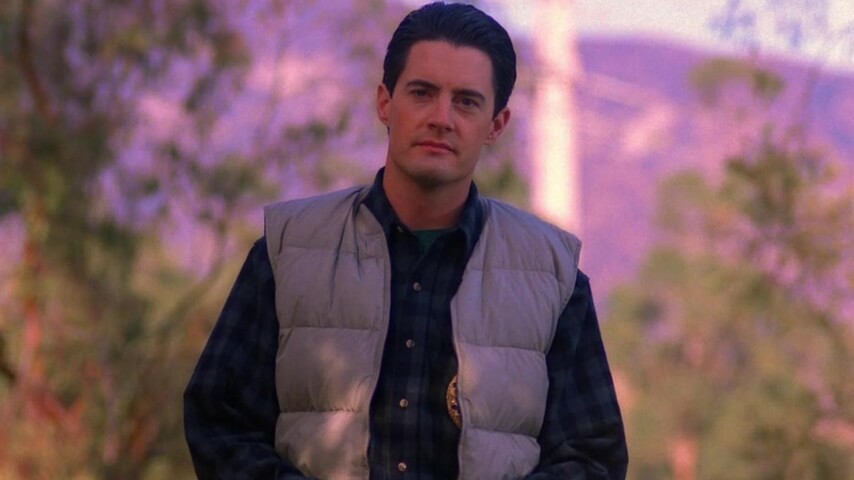Twin Peaks recap: season 2, episodes 3 and 4
This TV Club Classic delves into "The Man Behind The Glass" and "Laura's Secret Diary."
Photo: ABC
Episode 3
After a string of episodes with nightmares at the end, we open with someone waking from a nightmare. Or was it? It’s not clear what’s upset the semi-comatose Ronette so much but something’s up. Someone’s tampered with her IV and placed another letter under her fingernail, even if it’s not clear exactly who. At the scene of the crime, Cooper tells Albert, “I believe I was visited by a giant.” It sheds no light on the matter but still feels like progress toward a solution. Somehow. We’re not, after all, in an ordinary kind of place.
Did Frost and Lynch know they were only episodes away from revealing the killer? At this point they must have known they were entering the endgame of the Laura Palmer story. Later we’ll hear Leland remember hearing the line, “Do you wanna play with fire, little boy?” as a child, words his daughter would repeat to Bobby. The players are getting drawn more tightly together.
But first we have to meet a few more of them. Poor Harold Smith: As played by Lenny Von Dohlen he’s the ultimate pin-up for agoraphobia fetishists, a caring, romantic, handsome, wounded man who always has time to listen and knows his way around a garden. Put a layer of fur on him and he’s Ron Perlman in Beauty And The Beast. He could be the cover boy for Sexy Shut-In magazine, if such a thing existed. (Hey, it’s only slightly less probable than the apparently text-heavy Flesh World.)
Harold has saltines and apple butter and a weirdly seductive air about him. Laura may have fallen for it, and Donna seems to vulnerable to Harold’s charms as well. It’s easy to see Harold’s appeal to Laura. He’s kind like James but, unlike James, there’s no danger of him following her around should she resume her destructive ways again. And, hey, apple butter. It’s pretty easy to see why Donna likes him, too, especially after last episode’s disastrous musical number and even more after the James and Maddy scenes to come. He’s as uncreepy as a creepy character can be and it’s a credit to Von Dohlen’s performance that he sells his appeal even after suggesting that the sensitive recluse lifestyle had sexual benefits involving teenage girls.
The episode mostly gives all the plotlines a creeping advance, including the dull ones. I’m back to being bored with Josie and the burning of the sawmill and I dread what’s coming with Super Nadine. Also, Donna’s visit to Laura’s grave stinks of filler and gives Lara Flynn Boyle and scene that’s virtually impossible to play. We also meet Richard Tremayne, played by Ian Buchanan more or less as a gay dandy from the 1950s, who may or may not have impregnated Lucy. Also Audrey gets bound and drugged as the One Eyed Jacks plot takes an especially grim turn that wouldn’t be out of place in a Reefer Madness-era drug hysteria movie.
But there are a couple of really memorable scenes. One involves Dr. Jacoby’s Hawaiian hospital room (complete with Hawaiian wife) and subsequent hypnosis. The other involves the brittle Albert’s declaration of pacifist principles, surely Miguel Ferrer’s finest moment on this show if not, well, ever. Prodded by Truman after insulting Twin Peaks’ provincialism again, Albert lets loose a monologue sure to melt the heart of anyone out there who puts up a tough exterior but mists up at kittens or scenes from Tiananmen Square. I’m just going to reprint it in full. Read it. Memorize it. Tattoo it across your back. It’s perfect:















![Rob Reiner's son booked for murder amid homicide investigation [Updated]](https://img.pastemagazine.com/wp-content/avuploads/2025/12/15131025/MixCollage-15-Dec-2025-01-10-PM-9121.jpg)
























